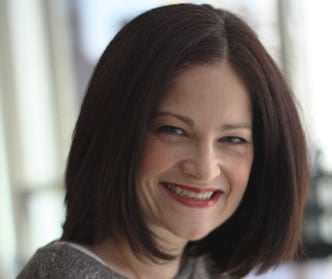Last Updated on June 27, 2022 by Laura Turner

Dr. Darcy Lockman is a clinical psychologist in private practice in New York City. She attended the University of Michigan, where she earned a bachelor’s degree in American culture (1994). After taking several years off, Lockman attended City University of New York-Hunter College, where she earned a master’s degree in psychology (2003) and wrote her master’s thesis on the relationship between adult attachment style and sexual behavior.
In 2008, Lockman earned a Ph.D. in clinical psychology from Adelphi University, where she specialized in individual adult and group psychotherapy with a concentration in psychological testing, writing her doctoral dissertation on the relationship between the referential process and adult attachment style. She completed a one-year pre-doctoral internship at Kings County Hospital, and after her graduation, she completed a two-year post-doctoral fellowship at Bieuler Psychotherapy Center.
In addition to being in private practice, Dr. Lockman is an adjunct clinical supervisor at the City University of New York. Dr. Lockman specializes in inpatient and outpatient psychotherapy and psychological testing with adolescents and adults; psychological evaluation in the emergency room setting; health psychology; and family therapy. Last year, Doubleday published her memoir, Brooklyn Zoo: The Education of a Psychotherapist.
When did you first decide to become a doctor? Why?
Like many people who become psychologists, my first exposure to the field was as a patient. I started therapy at 22 when I was beginning a career in another field, and I became enamored of the way my psychoanalyst thought. She helped me understand myself in a complex way that also felt very true, and I wanted to be able to offer others what she gave to me.
How/why did you choose the school you attended?
There are different schools of thought in psychology these days, and because of my personal therapy, I knew which one felt the most interesting and stimulating to me. I chose to apply to graduate programs based on what we call the “orientation” of the programs. I wanted a psychodynamic program, so I hunted those down and then applied to them.
What surprised you the most about your studies?
How all-encompassing it became. I went back to school at 30, feeling like I already had a full social life and didn’t want to make friends. I ended up becoming very involved with my classmates because we were all so excited about what we were doing. For the five years, I was in school, for better or worse, I didn’t have a lot going on outside of it. Luckily, my other friends were happy to see me regularly again once I graduated. I’m happy to have friends who are not psychologists.
Why did you decide to specialize in clinical psychology?
People get in their own way in life: time and again. Helping people to see how they do this, and to show them other ways of being, is very gratifying to me. If everyone were in therapy, the problems of the world would be much more easily resolved. If everyone could get out of their own way.
If you had it to do all over again, would you still become a clinical psychologist? (Why or why not? What would you have done instead?)
Yes, I’d do it all again. I love my work. It’s never dull, though it’s often emotionally difficult.
Has being a clinical psychologist met your expectations? Why?
Yes. I had been self-employed as a freelance writer and loved the freedom of that. I have that as a psychologist as well, and really appreciate it, especially now that I have small children. Also, honestly, there’s never a dull moment.
What do you like most about being a clinical psychologist?
I love getting to know people really well, hearing their stories, and helping them to strive toward building a life that feels meaningful and fulfilling to them, in whatever way they define that.
What do you like least about being a clinical psychologist?
The student loan debt will be with me for a lot of my life. It was worth it, but it has felt burdensome, especially in my first years out of school. Also, the work can be painful. When the work is going well, patients bring up difficult feelings in their providers. It’s part of my job to work through those, which ultimately serves me well, but it can be tough in the thick of it.
What was it like finding a job in your chosen career field? What were your options and why did you decide what you did?
In the current health care climate, hospital jobs for psychologists are rarer than they should be. The “jobs” that are available (e.g. nursing homework, which is almost all I see posted on job sites these days) are not necessarily gratifying, or what one envisions for oneself. I knew I ultimately wanted to be in private practice, so I did other side jobs while I built that. The first years out of school are not easy by any means.
Describe a typical day at work.
I go to my office. My patients come to see me. We talk. I have breaks throughout the day and I do my patient notes then, or eat lunch, return phone calls. Because I set my own schedule my day is only as hectic as I make it, and I control my own environment. I have a very comfortable chair, and I’ve picked all the décor. Typical hours are completely at my discretion. I could work 6 a.m. to midnight if I wanted, or noon to 5 p.m. Some therapists work weekends–patients who work full time are certainly willing to come in then.
On average: How many hours a week do you work? How many hours do you sleep per night? How many weeks of vacation do you take?
I’m currently home part-time with a baby, so I’m doing about 18 patient hours a week. Between writing and practicing, I’ve usually worked about 35 hours per week. I don’t sleep as much as I’d like, but this is because of my small children and not my career. My husband is a psychologist, too, and he works more than I do. He is away from home two evenings a week because that’s when many people need to see their therapist. That can be one drawback of the work—not being home for dinner. Vacation is tricky when you’re self-employed, but I’ve probably been taking two full weeks a year, and then long weekends here and there.
Are you satisfied with your income? Explain.
Yes. It takes time to build a practice, but once it’s built you can make a comfortable living. You will not be rich. Especially if you live in New York City.
If you took out educational loans, is/was paying them back a financial strain? Explain.
It was an incredible strain for the first couple of years out of school. As a psychologist, you are not licensed for at least a year after graduation (which means you can only do very low-paying work) but that first loan payment is due as soon as you graduate. This is a huge problem in clinical psychology education/licensing regulations right now. I was working six days a week simply to make ends meet for the first year out of school. It was exhausting and disheartening.
In your position now, knowing what you do – what would you say to yourself when you started your medical career?
Work more during school to try to take out fewer loans.
What information/advice do you wish you had known when you were beginning your medical studies?
Get as much clinical experience as you can while you’re taking your courses. It’s hard for the reading/theory to really sink in when you haven’t worked with/aren’t working with patients.
From your perspective, what is the biggest problem in health care today?
Availability of/interest in psychological services. We live in a society quick to medicate, eager for quick fixes. The rewards of psychotherapy are slow-won. “Slow” is not the way of our current culture. The drug companies have done their best to make the public believe that there is something wrong in their brains as opposed to in their lives/minds. They’ve gotten rich but have done the public a huge disservice in this (not that medication can’t be wonderfully helpful, but it has its limits).
Where do you see clinical psychology in five to 10 years?
I hope the pendulum swings back in the direction of psychological mindedness, and that the broader culture begins to value the development of self-understanding over pills and six-session miracle treatments.
What types of outreach/volunteer work do you do, if any?
I work on a sliding scale with patients with financial needs. I am a volunteer with the City of New York’s emergency medical corps.
Do you have a family? If so, do you have enough time to spend with them? How do you balance work and life outside of work?
I have a husband and two young daughters. I set my own schedule so I can be with my children more than my friends who are traditionally employed, though of course, I have financial obligations to meet, which means working.
Do you have any final piece of advice for students interested in pursuing clinical psychology as a career?
It’s really interesting and rewarding work. Do it!


Good to see a fellow Wolverine and mental health professional doing well.